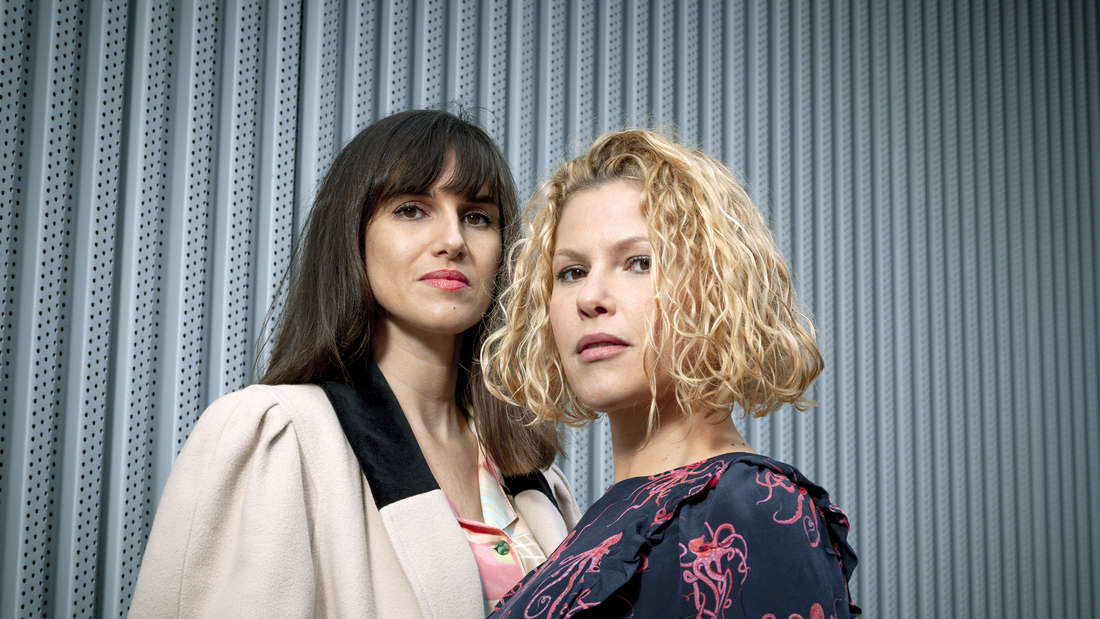
A documentary about attempts to use violence to silence women online.
Frankfurt – You like to rape. Anal intercourse is also one of her preferred methods. At least in their fantasies: men who stalk, insult and threaten women on the internet. Because they are almost exclusively men, mostly those with right-wing extremist sentiments. And often “the nice man next door”, as the two authors Florence Hainot and Myriam Leroy describe in their film “#dreckshure”. They let some of the women who had to go through this experience have their say.
At first they read quotes from the postings on the Internet. You tend to switch off because you don’t want to hear these rude sentences. But the affected women had to endure it because the rubbish flooded their accounts on Twitter, Facebook etc. Not once, but sometimes for weeks, months, years. Why? Because they dared to speak out publicly. Or just because they are women. Almost three quarters of all women online have been victims of cyberbullying – worldwide. Also a global epidemic…
“#dreckshure” (Arte): Deep-seated contempt for women
In their calm, clearly structured film, the authors document this monstrosity, which despite “MeToo” has been largely ignored, with statements from those affected, experts and statistics. And ask why. One is the contempt for women that is deeply rooted in patriarchal society. Emma Jane, who researches misogyny in Australia, knows that this is significantly reinforced by social – or better: antisocial – media. Facebook, Twitter & Co need attention, so the scandal is their business model; that’s also how people like Mark Zuckerberg get rich. “Hate comments work better than cat videos,” reports Anna Lena von Hodenberg from the Hate Aid organization, which supports victims of online hate speech.
Law enforcement is often hampered by an unwilling executive or judiciary, usually male-dominated. Businesswoman Alice Barbe had filed 360 complaints, of which just seven led to charges and only six to convictions against the men. And in the case of the politician Renate Künast, a German judge ruled that “Drecksvotze” was not an insult, but an “expression of opinion”. It took a long time before Künast was right. For example, she had to register 217 hate comments after appearing on the talk show “hart aber fair”.
| #dirty whore | |
|---|---|
| directing | Florence Hainaut, Myriam Leroy |
| production | KWASSA Films Productions |
| producer | Annabella Nezri |
| genre | documentation |
| origin | Arte, RTBF |
| country | Belgium |
| Year | 2021 |
“#dreckshure” (Arte): Women should be silenced
The purpose of such attacks is clear: to silence women. The network is “the most important public space we have,” as Anna Lena von Hodenberg puts it. If the voices of women were pushed out of this space, then the law of the strongest would ultimately triumph in the public debate – the end of democratic discourse.
About 76 percent of women changed their online activity after being threatened with violence, and almost a third fell silent after online hate attacks.
“#dirty whore”
Wednesday, July 27, Arte, 9:50 p.m., available in the media library until August 25, 2022
This finding must be worrying. But reporting in the media is often characterized by the “false balance”: hate comments or scandals are given just as much space as the fight against them – even though the former only make up a small part of the discourse. Because the “haters” are not a “silent majority”, but a rowdy minority. (Daland sailors)




